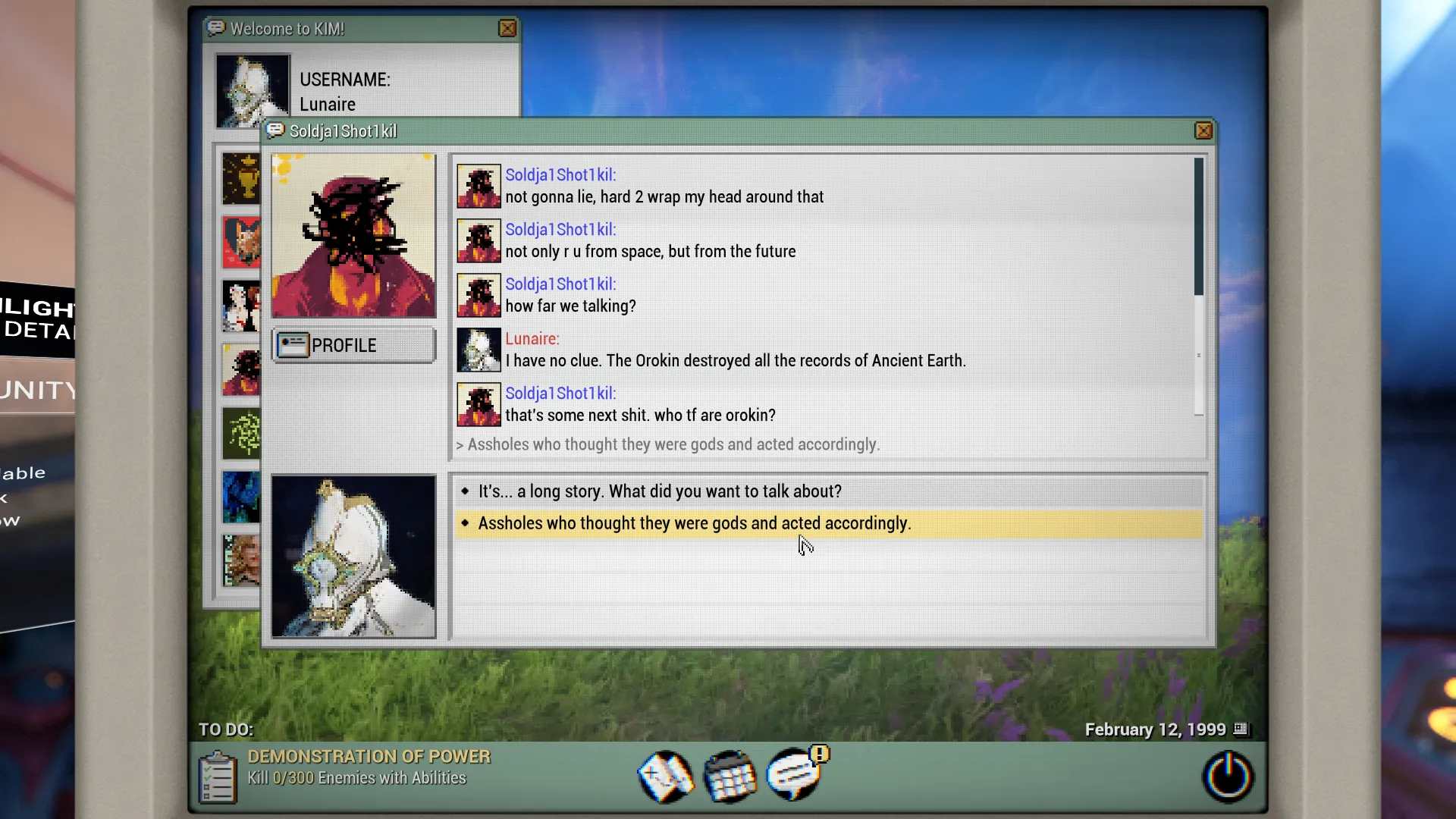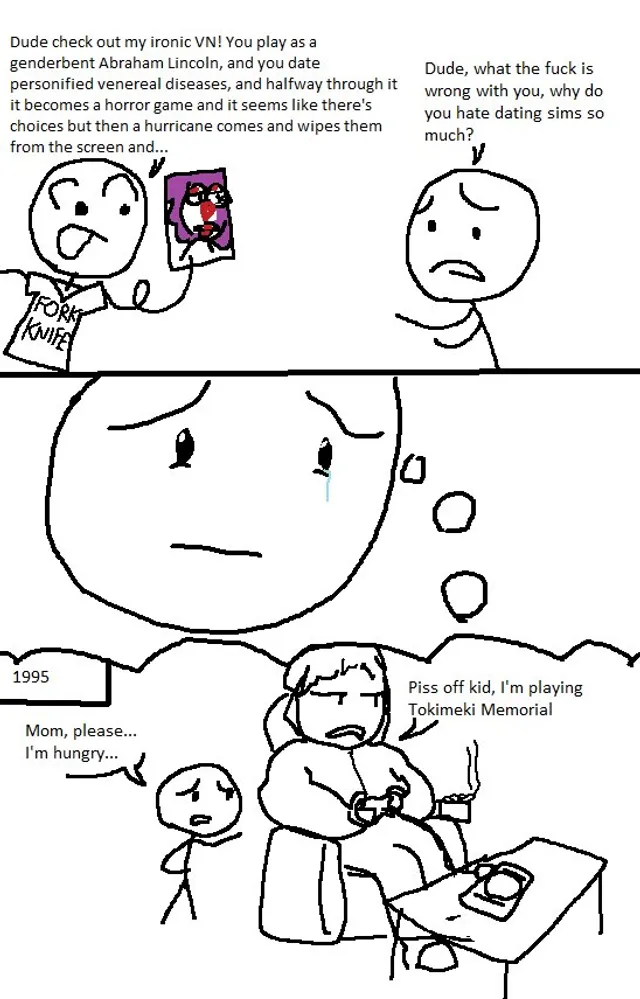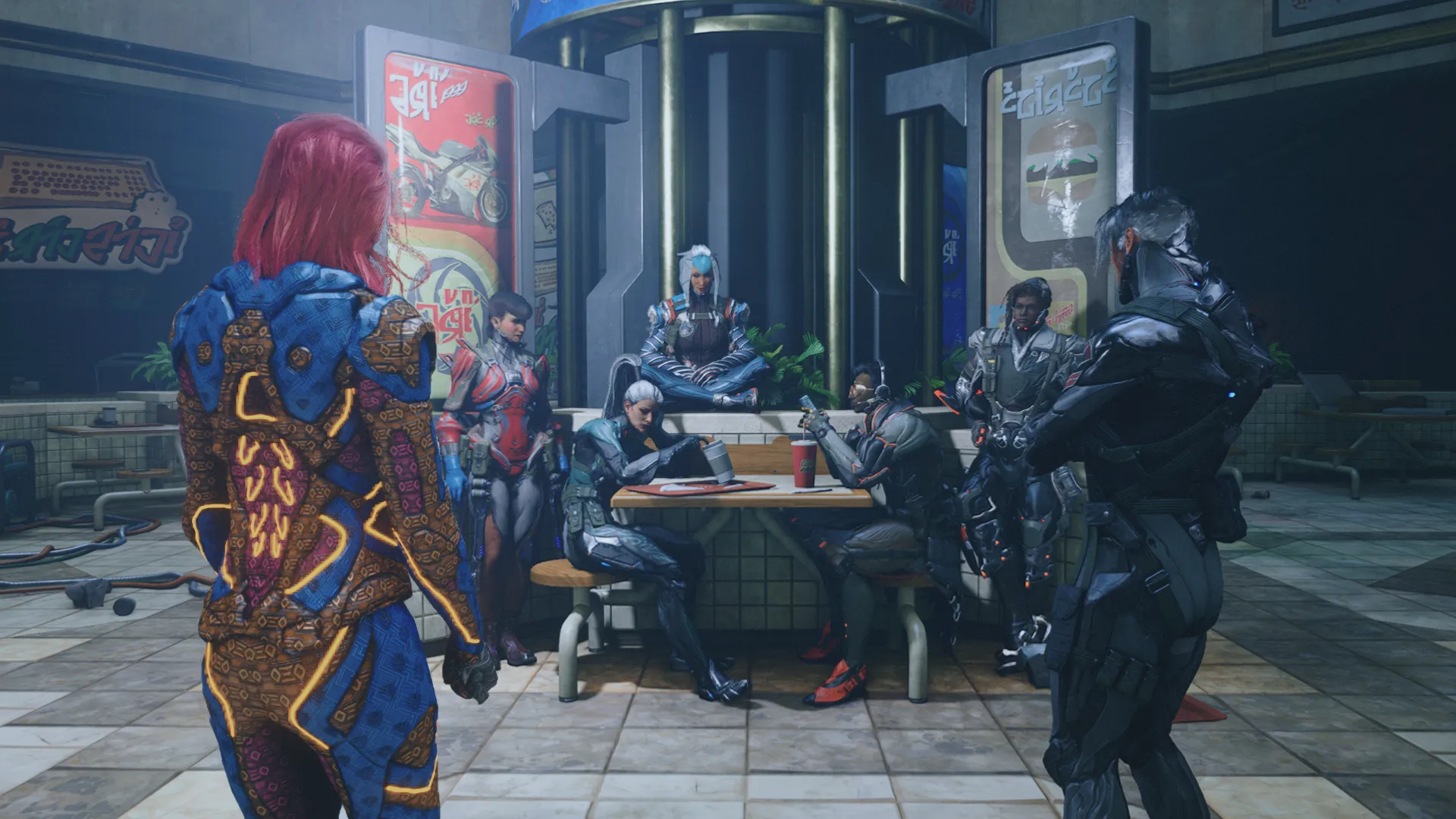Warning: This bark contains small spoilers for Warframe, but avoids spoiling anything surprising.
In Warframe 1999, Arthur is a no-nonsense, responsible guy; Amir is excited about everything; Quincy is rude and plays tough, but you know it’s all an act; Aoi stays cheerful; Eleanor embodies a quiet sense of resolve and fatalism; and Leticia speaks Spanish. Yeag—they kinda skipped giving her a real personality. But five out of six is a good run!
You will become their friend. For story reasons. For mechanical reasons. For the developer’s need to keep you playing for a week before you’re done with the new update, really.
Rather than voice acted dialogues, you can send them instant messages. All of them are real people.

Well—except Leticia, mon ami•e: she uses more Spanish in a single conversation than my ESL oomfies would drop in a year, je ne sais pas pourquoi, nobody does that in real internet life, c’est bizarre de parler comme ça.
But indeed: their screen names, their avatar, the speed at which they type, their spelling style, and of course, what they say: they feel more real than their actors could have made them.
All are real people i talked to online. I just know the writers wrote those dialogs as real roleplay sessions, not by sitting down in front of MS Word.

But i do not like it. The goal is to earn points. To earn Gold replies.
There is a micro-genre of Western games: indie dating sims existing purely as a critique of a problematic wacky Japanese genre the author never actually engaged with.
In those games, a character winks to the camera and, in a bold display of postmodernism, says to you, the audience, “have you noticed? It’s kind of messed up that the object of the game is to be nice to me to raise my hidden gauge in order to have a relationship”.
I think they’re cooking.
Shame that they’re critiquing a format that mostly exists in their imagination, but it’s a solid critique of the strawman they erected in their mind.

Author of this timeless classic unknown
To earn Gold replies in 1999 requires you to pick the right choices: they’re different for every character, but in general, achieved by telling them what they want to hear, and never stopping the conversation abruptly.
I just want to be a complete asshole to Quincy, because he’s a dick—but a measured approach works better.
I wanna figure out why Arthur is so pissed off at me, but i wanna be rude about it, rather than score points.
I wanna joke around with Amir, but he rewards showing a clear interest in his fancies.

What truly pisses me off here isn’t the lazy mechanic, where most branches of the conversation are suboptimal—where the narratively promising branches drop less loot.
What pisses me off isn’t Digital Extremes’ lack of trust in their writing, tying dialogues to an extrinsic reward, rather than trust you would engage with them without incentives.
What pisses me off is that it’s a mean caricature of the way i behave online.
The game wants me to be an almost entirely different person with all the six characters, to match their style.
And for sure: i’m the kind of autist who reverse engineered social graces from first principles. Every online conversation has me running processes in the background where i model your mental state. The asynchronicity allows me to game out a few potential replies, and try to steer the conversation.
But i have no bad intent in trying to figure out your preferred communication style. It’s not about telling you what you want to hear to gain an advantage out of you. It’s about making sure you feel good talking to me, smoothing over bumps in communication. If it were deceptive and malicious, i wouldn’t readily admit my brain works that way.